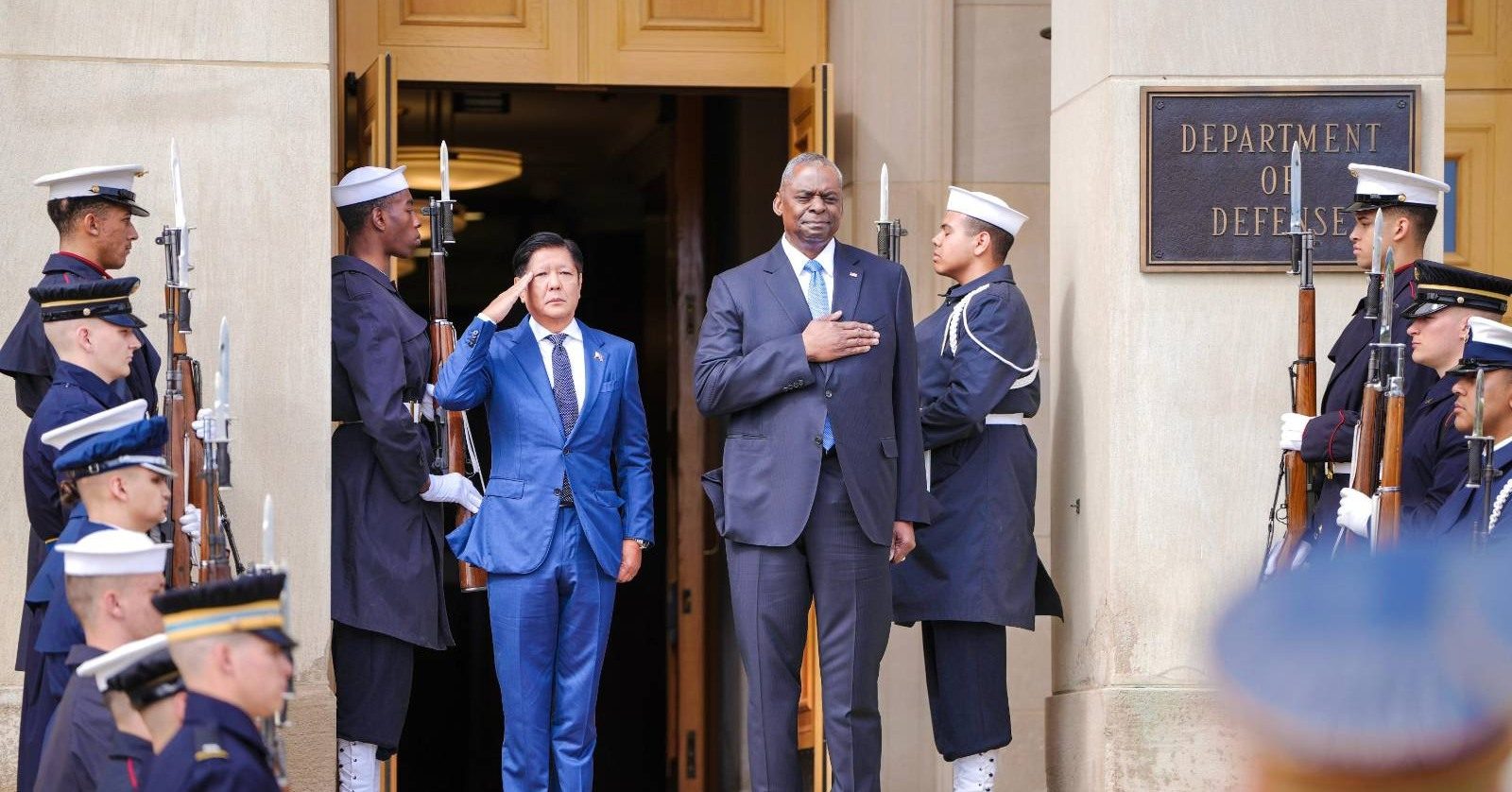SUMMARY
This is AI generated summarization, which may have errors. For context, always refer to the full article.

MANILA, Philippines – A Filipino serviceman’s death in an attack by a foreign power would invoke the Philippines’ Mutual Defense Treaty with the United States, President Ferdinand Marcos Jr. said on Monday, April 15.
Marcos said this in a media forum with foreign correspondents based in Manila, when asked what “conditions” would invoke the 1951 treaty, through which both the Philippines and the US promise to come to each other’s defense in the event of an external armed attack.

“I think [US Defense] Secretary [Lloyd] Austin explained it very well. If any serviceman, Filipino serviceman, is killed by an attack from any foreign power, then that is time to invoke the Mutual Defense Treaty. I, actually, when I spoke to him in Washington, I thanked him for making it very, very clear to everyone and he did precisely that,” said Marcos, who recently met with Austin at the Pentagon during a visit to Washington DC.
“He was asked the same question that we’re all asked when do you invoke the Mutual Defense Treaty? When does it kick in to action? And, he said, that if a Filipino serviceman is killed because of an attack, or an aggressive action by another foreign power,” the President added.
Philippine and US officials have long been pressed on the specifics of the Mutual Defense Treaty, which was signed in 1951.
Previously, American officials had refused to go into specifics, only reaffirming that the treaty “extends to both countries’ armed forces, public vessels, and aircraft – including those of its Coast Guard – anywhere in the Pacific, including the South China Sea,” according to a readout from the Pentagon from April 12 meeting with Marcos.
Asked if the Philippines would invoke the treaty in case of attacks from “patrol vessels, or the maritime militia,” Marcos said this would be the case for “as long as they have actually caused causalities and has killed the serviceman.”
“That is an attack on the Philippines by a foreign power,” he added.
In the West Philippine Sea, or parts of the South China Sea that includes the Philippines’ exclusive economic zone, Chinese presence is well documented. The People’s Liberation Army Navy and China Coast Guard regularly patrol different areas and features in the West Philippine Sea, including those where the Philippines has sovereign rights.
The Chinese Maritime Militia, a fleet of fishing vessels, have also been known to support activities of Chinese vessels, especially that of their coast guard. Unlike for most countries, the China Coast Guard is under the military structure of China.
China’s actions in the West Philippine Sea have become more and more aggressive, especially in flashpoints like Ayungin Shoal and Bajo de Masinloc.
In Ayungin Shoal, the China Coast Guard has repeatedly used water cannons against civilian ships contracted by the Philippine Navy to bring troops and supplies to the BRP Sierra Madre, an intentionally grounded Navy vessel that now serves as a military outpost.
In March, several soldiers were injured and the resupply vessel was damaged because of China’s water cannons.
Marcos insisted then that such actions by China would not invoke the MDT.
Armed Forces of the Philippines chief General Romeo Brawner Jr, had said, following the March 23 resupply mission to Ayungin Shoal, that the Philippines would exercise “maximum tolerance” in the face of Chinese harassment. – Rappler.com
1 comment
How does this make you feel?
![[In This Economy] Marcos’ POGO ban is popular, but will it work?](https://www.rappler.com/tachyon/2024/07/thought-leaders-marcos-pogo-ban.jpg?resize=257%2C257&crop=255px%2C0px%2C720px%2C720px)
![[Rappler Investigates] POGOs no-go as Typhoon Carina exits](https://www.rappler.com/tachyon/2024/07/newsletter-graphics-carina-pogo.jpg?resize=257%2C257&crop=424px%2C0px%2C1080px%2C1080px)





![[Just Saying] SONA 2024: Some disturbing points](https://www.rappler.com/tachyon/2024/07/TL-marcos-sona-points-july-23-2024.jpg?resize=257%2C257&crop=335px%2C0px%2C720px%2C720px)



![[Just Saying] Invoke the Mutual Defense Treaty](https://www.rappler.com/tachyon/2024/06/TL-invoke-mutual-defense-treaty-June-25-2024.jpg?resize=257%2C257&crop_strategy=attention)
![[Rappler’s Best] Divided we fall](https://www.rappler.com/tachyon/2024/06/Divided-we-fall.jpg?resize=257%2C257&crop=363px%2C0px%2C720px%2C720px)





So, what is needed is a sacrificial lamb, just like Jesus Christ? Someone has to die first before the MDT can be invoked. Does the US Congress approve this?